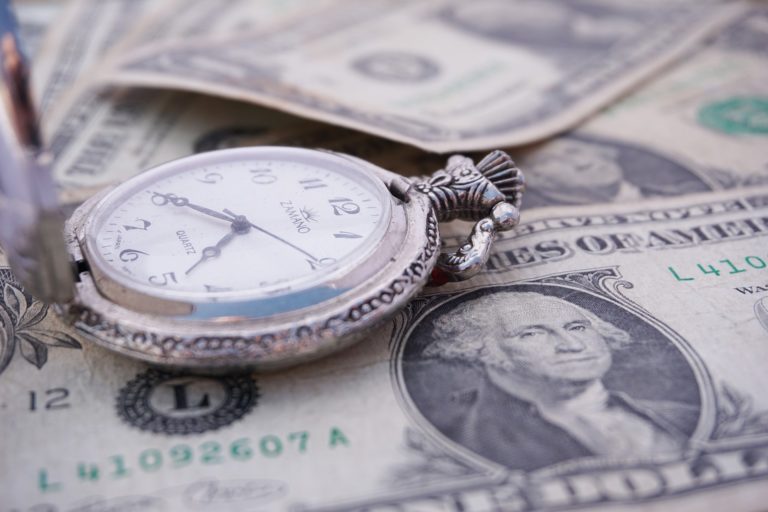50 Everyday Expenses You Need to Stop Spending Money On
Our daily life can be hectic and sometimes we long for convenient ways to save time and do less. Unfortunately, seeking convenience too often can cause you to overspend quite a bit.
Saving money is very convenient too and much better for your wallet and your financial goals. By planning ahead using savings strategies, we can save money on many daily purchases we tend to make and enjoy convenience in most cases. Let’s put more money back into our pockets by saving money on these 50 common expenses many people tend to pay regularly.
Table of Contents
1. ATM fees
Take a bit of extra time to withdraw money from your bank’s ATM and save on the cost to withdraw your own cash or if your bank has a mobile app, use it to find an in-network ATM near you.
2.Banking Fees
Don’t pay to manage your money at a bank. Find banks that offer free banking or bank online for free like CapitalOne 360. Earn $25 when you open a free checking or high-yield savings account.
3. Change-Counting Machines
Many of us like to keep our loose change in a jar and let it collect over time. Once it’s full, don’t pay machines to count it for you, go to your bank to deposit your savings or have it exchange for cash.
4. Utility Bill Payment Fees
Skip the line at the currency exchange or grocery store and pay online using checking account or debit card. Some companies charge to use a debit card, so schedule e-check payment, which is typically free.
5. Credit Card Interest
Maintaining a balance on your card usually you to pay interest each month. Try to pay off your credit card balance in full each month or send more than the minimum payment. As always, use your credit cards responsibly.
Related: Best Strategies and Tips to Crush Credit Card
I Raised My Credit Score By 150 Points, Here’s How
6. Gas Station Food and Snacks
Although it may be convenient, prices are always marked up when compared to other stores. So take the time to shop for food in advance at your grocery store and pack emergency snacks in your car. Also, try Ibotta which is one of my favorite apps to use to save money on groceries, clothes, household goods, etc. Just scan your receipt with your phone and start saving money. You can earn $10 instantly with Ibotta as long as you use the app within 7 days of signing up.
Related: How I Avoid Expensive Work Lunches (and How You Can Too)
7. Pumping Premium Gas
Some vehicles may not require premium gas, which is the most costly of the gasoline grades. Stop trying to be fancy, check the owner’s manual, and save.
8. Wasting Gas Due to Low Tire Pressure
You may not know this, but having low tire pressure affects your mileage significantly. Save gas and money by improving your gas mileage by simply checking your tire pressure and maintaining it at the proper level.
9. Single Car Washes
Many car wash places offer a flat monthly rate for unlimited washes, so check with your local car wash to find out if they offer a monthly rate and cash in on a clean car. Or, you can get a discount when you pump your gas.
10. Lottery Tickets
According to the Powerball, the odds hitting the jackpot are 1 in 292,201,338.00, and CNN cites that Americans spent $70.15 billion in 2014. Let’s save our hard-earned money.
11. Bottled water
Unless you live in an area where potable water isn’t safe, don’t waste your money on bottled water. Often times, it’s simply bottled tap water. Buy a reusable water bottle or invest in a quality water filter, and save (plus you’ll reduce plastic waste).
12. Coffee
A daily cup of joe adds up if you purchase it at places like Starbucks and Dunkin Donuts. Save by brewing at home.
13. Cigarettes
It’s a tough addiction to beat, but it is a very expensive to purchase cigarettes daily. Aside from causing deadly health effects, according to Time, smoking can cost you $1 to $2 million in a lifetime. Make an effort to better your health and wallet.
14. Garbage bags
If your area doesn’t charge for using plastic bags, reuse the ones you get from shopping as garbage bags. I do this all the time.
15. Plastic bag fees
For those living in an area where stores charge for plastic bags (*cough cough Chicago*), bring your own reusable one. Those cents add up!
16. Gift Bags/Wrapping
Reuse bags from previous occasions if they are still in good condition. We started doing this last year and no longer have to run out and by $3+ gift bags when we go to events or parties.
17. Greeting Cards
Take some time to make your own personal cards or send an eCard and skip on the expense.
18. Travel Size Toiletries
For the frequent traveler, you should buy empty travel containers and refill with shampoo, lotion, etc. as needed.
19. Magazine and Newspaper Subscriptions
Save money and paper by keeping up with free online news services.
20. Paying For Premium Streaming Music Services
In the digital age of music, don’t pay for premium services. Streaming companies like SoundCloud and Spotify allow you to listen to music for free.
21. Buying Books
If you’d like to truly own a book, then save on the paper and extra cost by purchasing the digital version, or go to your local library and check them out for free.
Another cost effective option is signing up for Audible. When you sign up you receive your first 30 days and your first audiobook selection for free.
After your trial period your low monthly membership fee gives you one credit a month to use for a new audiobook choice. Also, you can cancel your membership at any time and you get to keep the audiobooks you already selected. It’s definitely worth signing up for so check it out today.
22. Library Late Fees
Remember to return all materials on time. It’ll save you money and allow for other library patrons to enjoy the material in a timely manner. If you do have library fees, wait for a month when they accept canned goods as a payment method (usually around the holidays).
23. Brand New Video Games
Skip the early release and commotion of having the latest video game. Save major bucks by purchasing a used version of the game online or at stores like Game Stop.
24. In-App Purchases
Gaming apps are meant to entertain, and while most of them are free, don’t fall for the “purchase bonus lives” trap. In-game purchases add up.
25. New Phone Chargers
If you forget your charger and your phone needs to be charged, some time you’ll be inclined to purchase a new one, but it can be costly or even poor quality. Always keep your charger handy, look for a charging station where you’re at, or simply ask to borrow one.
Another way to save money is having a backup battery power pack on hand. The Anker PowerCore 10000 is a bestseller because of its portability, power capacity and price point. Having one near you will definitely be a lifesaver.

26. Batteries
Save on disposable batteries and purchase rechargeable ones. They can last up to two to three years.
27. Pens
Many offices, banks, insurance companies, etc, give them away for free. Save them and skip on the purchase.
28. Paper
Unless you’re a student, you probably don’t really need to buy a lot of paper – reuse already printed pages and use both sides.
29. Insurance
Be sure to get the best rate for your individual needs, whether it is car, health, home or life insurance.
30. More House Than You Need
While some families “grow into” their homes, sometimes less is more. Save on mortgage and the possibility of purchasing more for a larger home. Downsize and save.
Related: Non-Traditional Housing Alternatives to Consider
31. Leaky Faucets
If you pay for water utility bill, according to the EPA, fixing leaky faucets saves you 10% on your bill. By ignoring it, you not only lose money every day it goes unfixed, but you also waste clean water, at a rate of 10,000 gallons per year.
32. Cool Drafts
Save on heating and electric bills by fixing drafts and keep the warmth and cool in your home during the winter and summer.
33. Unnecessary Data Phone Plans
Unless you need unlimited data for work, you should not spend much on your cell phone bill. I save a ton of money on my cell phone bill by using a prepaid phone plan.
34. Leaving Electronics Plugged In
Even though you may not use them often, electronics that are plugged in still consume energy. Unplug appliances you don’t you often and keep other electronics on a power strip, turning them off when not in use.
35. Fast Food Restaurants
Improve your health and wallet by not eating fast food often. It may be cheap, but it adds up, especially if you eat out a few times per week. Instead, spend the money and the time to grocery shop and prepare meals.
If you’re going to eat out, a great way to save money and earn money at the same is by purchasing dining out Groupons through Ebates/Rakuten. You get the opportunity to earn cashback through Ebates/Rakuten and Groupon will find you a great deal so it’s a win/win!
Related: How to Eat Well For Only $300 a Month
36. Buying lunch
Sometimes you’re running late for work and don’t have time to pack a lunch. Buying lunch often costs much more than preparing and bring a meal to work. Spend some time planning, purchasing and preparing meals ahead of time so they’re ready to go, even when you’re in a hurry.
37. Prepared grocery store meals
When you do go grocery shopping, sometimes the already-prepped sub or diced fruits and veggies tempt you to buy them and save time, but you’ll be paying top dollar for those products. Plan a list ahead of time and buy the individual food items, then spend the time prepping them yourself in order to save.
If you have trouble making grocery lists and figuring out what you’re going to eat each day, I’d highly recommend trying out the $5 Meal Plan so you can receive healthy meal plans and recipes to your inbox.
Another option I highly recommend is My FreezEasy. This is a fantastic guide for your freezer meal making. You’ll get detailed recipes, complete shopping lists, instructional videos and more while saving yourself time, money and hassle.
Related: Foods That Help Keep Your Grocery Budget Low
38. Expiration Dates
Sometimes, expiration dates may not reflect the true shelf life of a product. Don’t waste food (and money) by throwing out a product which may still be fine to consume. Check out Eat By Date and see for yourself the true shelf life of your groceries.
39. Vending Machine Snacks
Not only are these snacks typically unhealthy (there goes your healthy habit), they are typically much more expensive than their grocery store counterparts. If you find yourself buying vending machine snacks, try to save the money instead and see how much you have leftover at the end of the month. You can probably invest it 🙂
40. Brand Name Items
Save money by skipping on the brand names, like medicine, toiletries, and certain foods. Remember that healthier options with fewer additives may cost more and in that case they may be worth it. Otherwise, generic is the way to go.
41. Buying Smaller/Single Packs
Products like toilet paper and soap have a long shelf life, so save on purchasing those often and buy in bulk.
42. Purchasing Paper Towels/Paper Napkins
You are purchasing these to eventually throw them out. Save on the waste and save money by buying reusable, washable towels and napkins. Your wallet and the environment will thank you.
43. Paying Extra For Night Time Movie Showings
Primetime showings are typically 2x higher than those during the day. Go to morning matinees or take advantage of weekly specials ($5 movie nights during the week).
44. Movie Theater Food
Often times, movie theater food can cost more than the ticket to get in. Try to keep food purchases to a minimum when you can or eat a filling meal before you go see a movie.
45. DVDs and On Demand
Instead of spending money on purchasing the movie, subscribe to streaming services and find an alternative or go to your local library.
46. Club/Bar Full Cover Charges
While having a spontaneous night out is fun, if you RSVP when possible, arrive early, or take advantage of online ticket sales, you can skip out on paying in full at your favorite nightlife places.
47. Transportation
When you’re heading out and can’t or don’t want to drive, consider calling Uber or Lyft instead of calling a cab so you can save money on the ride. You can use my link to get $20 off your first Uber ride.
48. Stuff on You Birthday
Your birthday is one of the best days to score free stuff like meals, drinks, desserts, tickets, services, etc. I wrote a whole roundup post on birthday freebies a while ago.
Related: Birthday Freebies Roundup
49. Kids Meals When Dining Out
When you do dine out and if you have kids with you, be sure to take advantage of ‘kids eat free’ specials. Most restaurants have specific days of the week when they offer free kids meals.
50. Pet Food
You may not be able to cut out this expense completely if you have pets, but you can score free cans of pet food with coupons occasionally so you won’t have to spend as much.
Another option is checking out Chewy. You will find all the things you need for your pet at lower prices. They also have great daily deals and frequent discount offers to help you save even more.

As you can see, there are many ways to save big on everyday expenses. How do you plan on cutting back and keeping more money in your wallet?
Stop Worrying About Money and Regain Control

Join 5,000+ others to get access to free printables to help you manage your monthly bills, reduce expenses, pay off debt, and more. Receive just two emails per month with exclusive content to help you on your journey.




